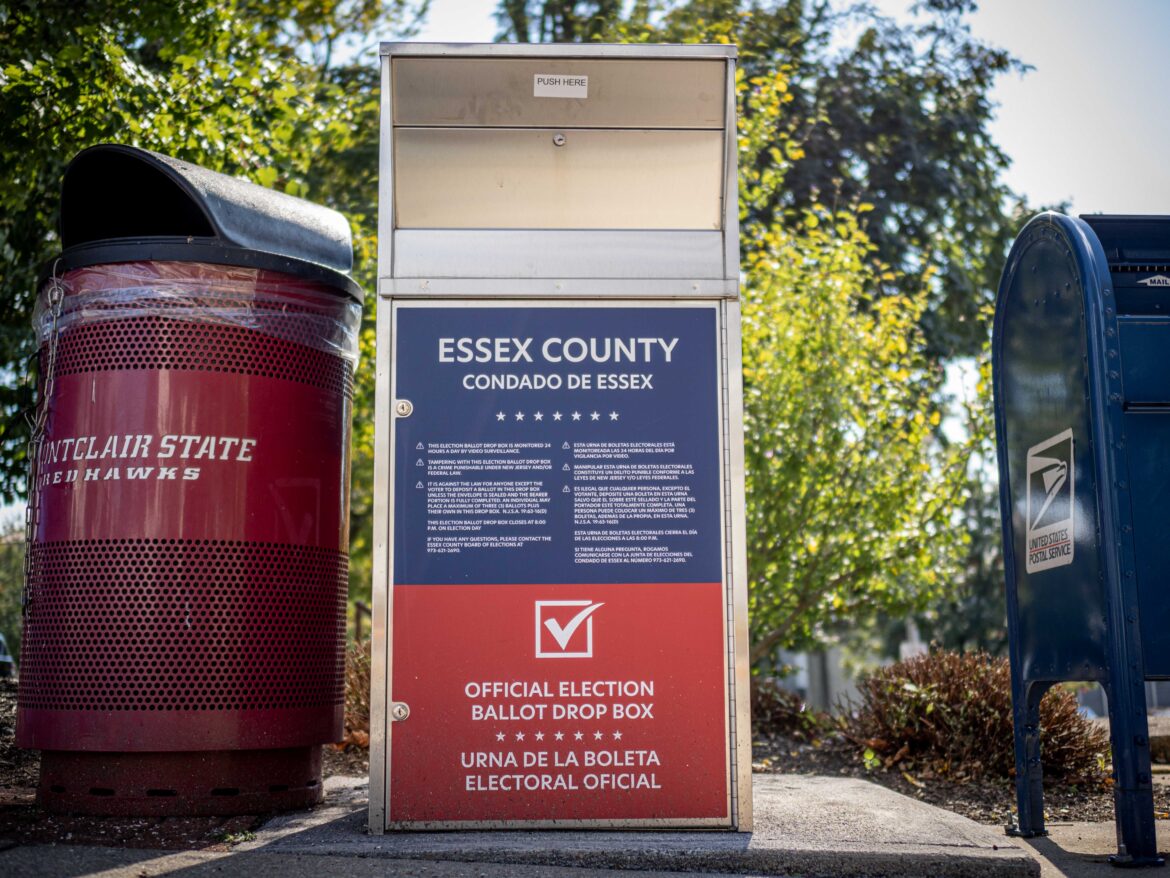According to Tufts’ CIRCLE, eight million new voters have aged into the 2024 election cycle. Some believe that Gen-Z could play a decisive role in what has become a tight race.
With less than a month until Election Day, most voters are locking in their decisions on which candidates have their vote in the 2024 election.
First-time voters must navigate the political sphere from a new perspective, narrowing down the most important issues to them and researching how to use their democratic weapon of change: the vote. The Montclarion interviewed first-time voters on campus to gather their opinions on the issues that matter most to them.
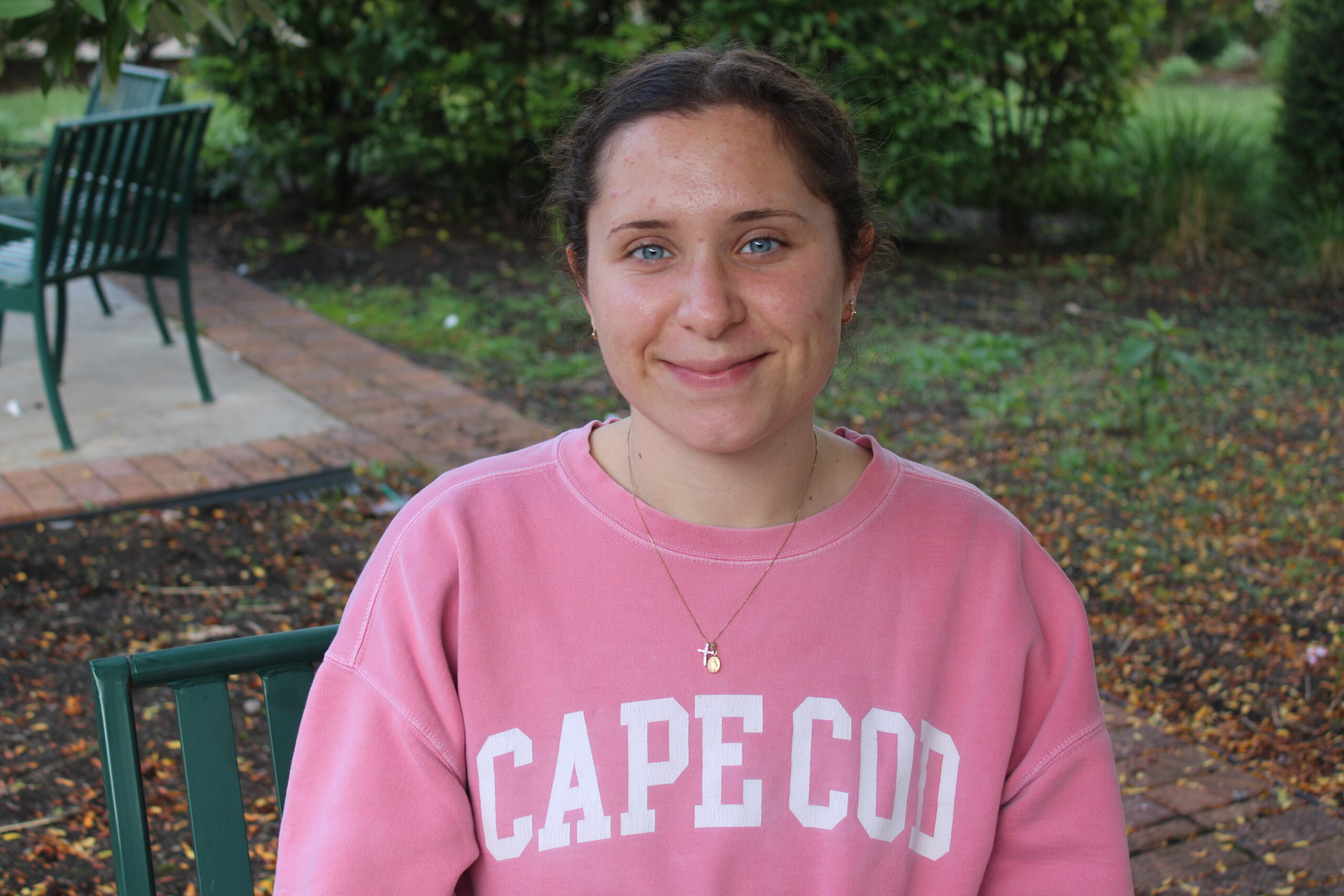
Abigail Schwed, a junior journalism and digital media major, is choosing to vote because of the economy and the consequences it’ll have on her future. Photo credit: Lauren Rivera
Abigail Schwed, a junior studying journalism and digital media, shared that her driving motivation to vote is the current state of the economy and its impact on her future.
“Being 20 years old, the main issues that I’m concerned about [for] the next four to eight years are being able to afford a house, being able to afford rent, being able to pay off college debt, being able to buy groceries [and] being able to just earn a living wage,” Schwed said. “I want to live a fulfilled life and not have to worry so much about the economics of it because money is really scary.”
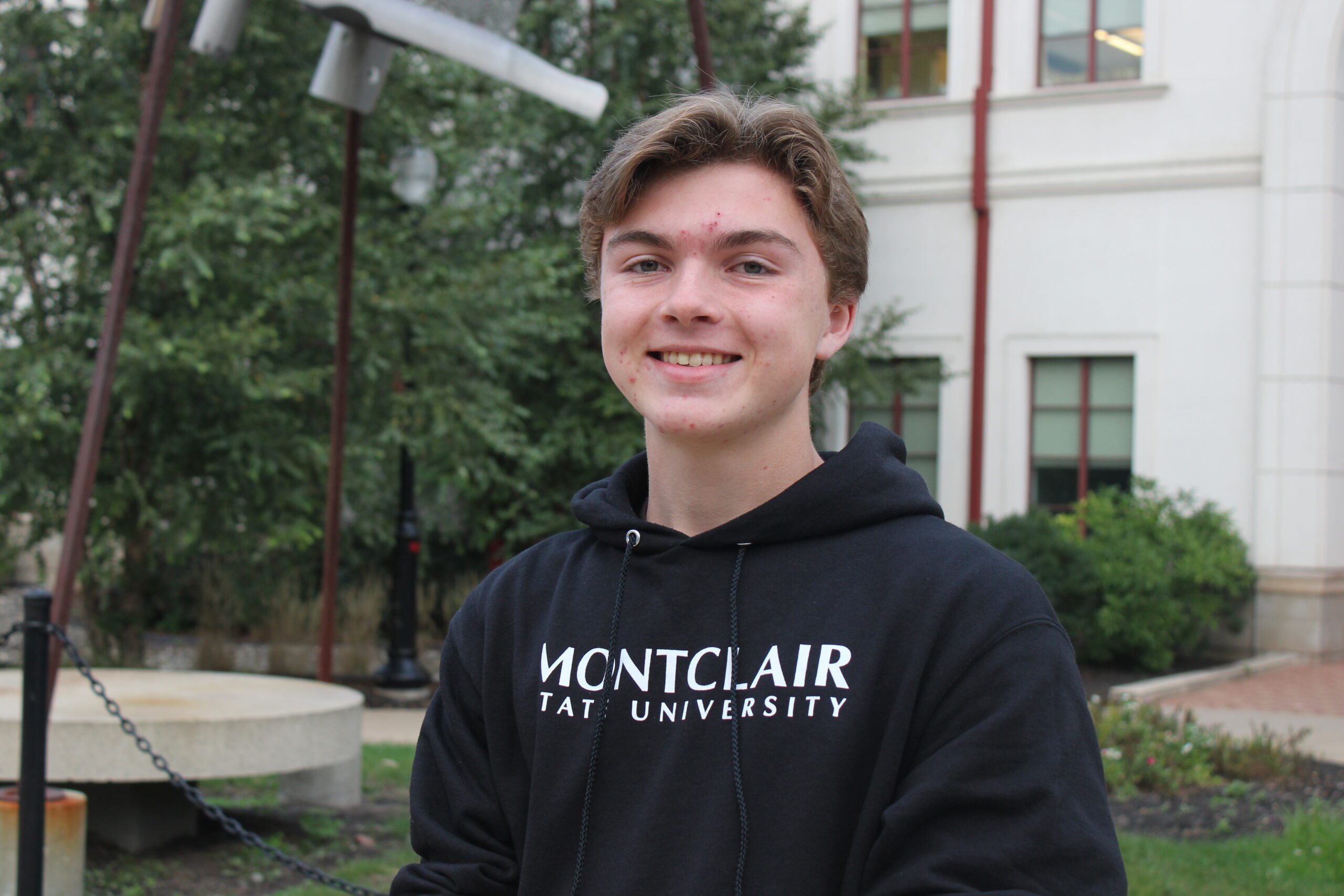
Jack Philp, a freshman film and television major, is mostly concerned about the economy and inflation. Photo credit: Lauren Rivera
Jack Philp, a freshman majoring in film and television, shared similar worries about the economy and inflation but feels less concerned about issues like immigration. Although still undecided, Philp is leaning toward voting for Donald Trump because of his economic plan.
“The border doesn’t really pertain to me, but I mean, if there’s bad things happening because of it being open, I can see why it would be a good thing for him to make it more strict,” Philp said. “I know that he said that he was going to remove [the] tax on overtime [pay]. [For] the last four years, there’s been high inflation and I feel like there’s a reason for that.”
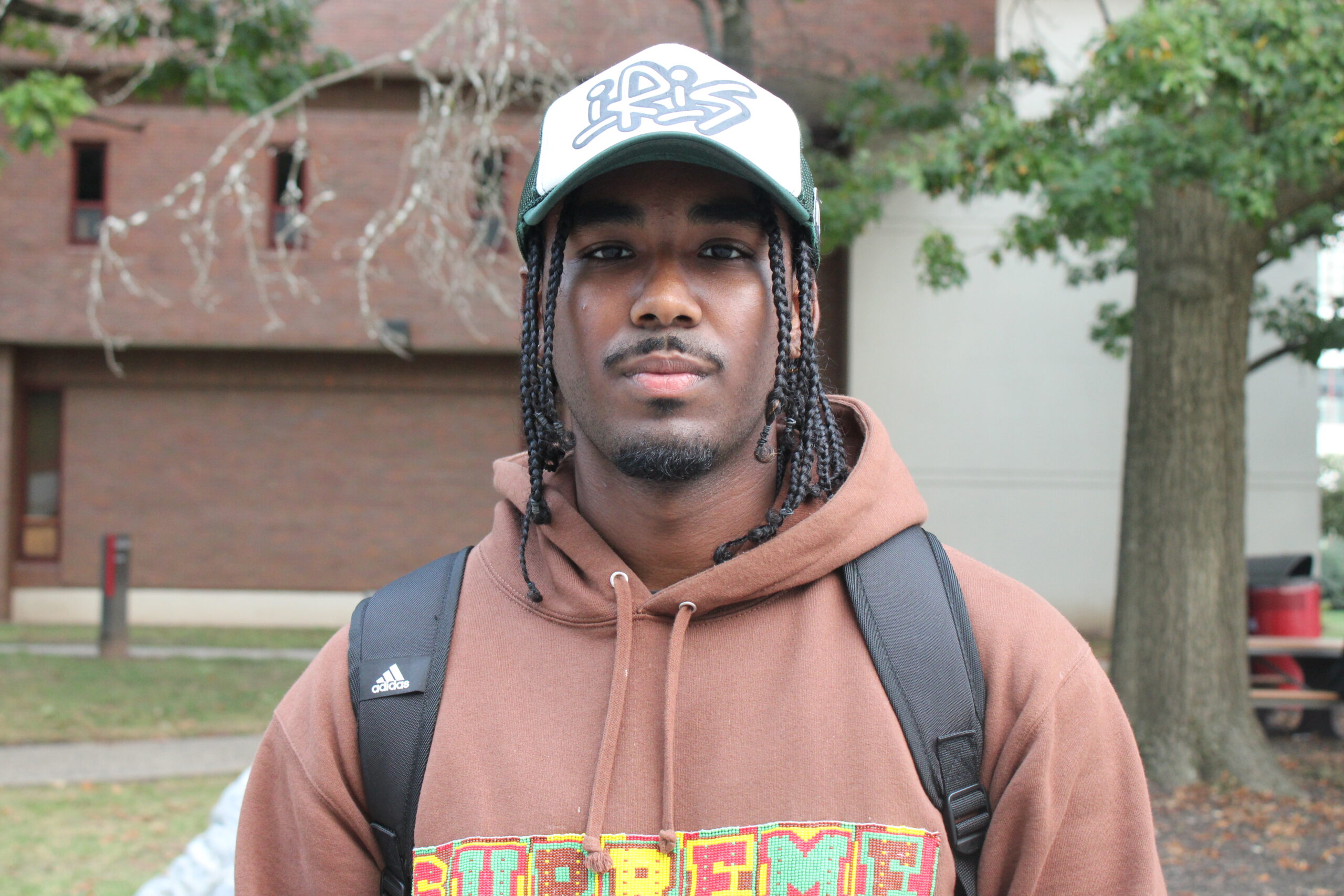
Sean Gadiare, a senior majoring in fashion design and merchandising, is choosing to vote because of the impact laws will have on those he cares about. Photo credit: Lauren Rivera
Sean Gadiare, a senior majoring in fashion design and merchandising, shared that his reasons for wanting to vote in November have less to do with what will impact him directly and more with what will happen to those around him.
“There’s a lot of things that don’t only impact me, but impact my loved ones and my classmates,” Gadiare said. “To coincide and to be unified, it’s very important to know who’s running the show.”
Gadiare’s biggest concerns driving his vote include women’s rights, human rights and foreign policy. However, he shared that he is truly concerned with “everything under the sun.”
“I want to know about everything that has to do with my country, where I’m living,” Gadiare said.
According to a poll conducted by Gallup, both Trump and Harris have higher unfavorable ratings than favorable, with 53% of voters finding Harris unfavorable, and 46% of voters finding Trump unfavorable. Three out of the four students The Montclarion interviewed felt similarly.
Gadiare explained that although he will be voting for Kamala Harris, he isn’t satisfied with the candidates presented to him.
“I think that they’re trying to make it a joke and it is not a joke. It’s unfortunate that the election is playing out the way it is, with switching candidates. It’s a serious matter,” Gadiare said. “The memes are funny but real life isn’t always funny.”
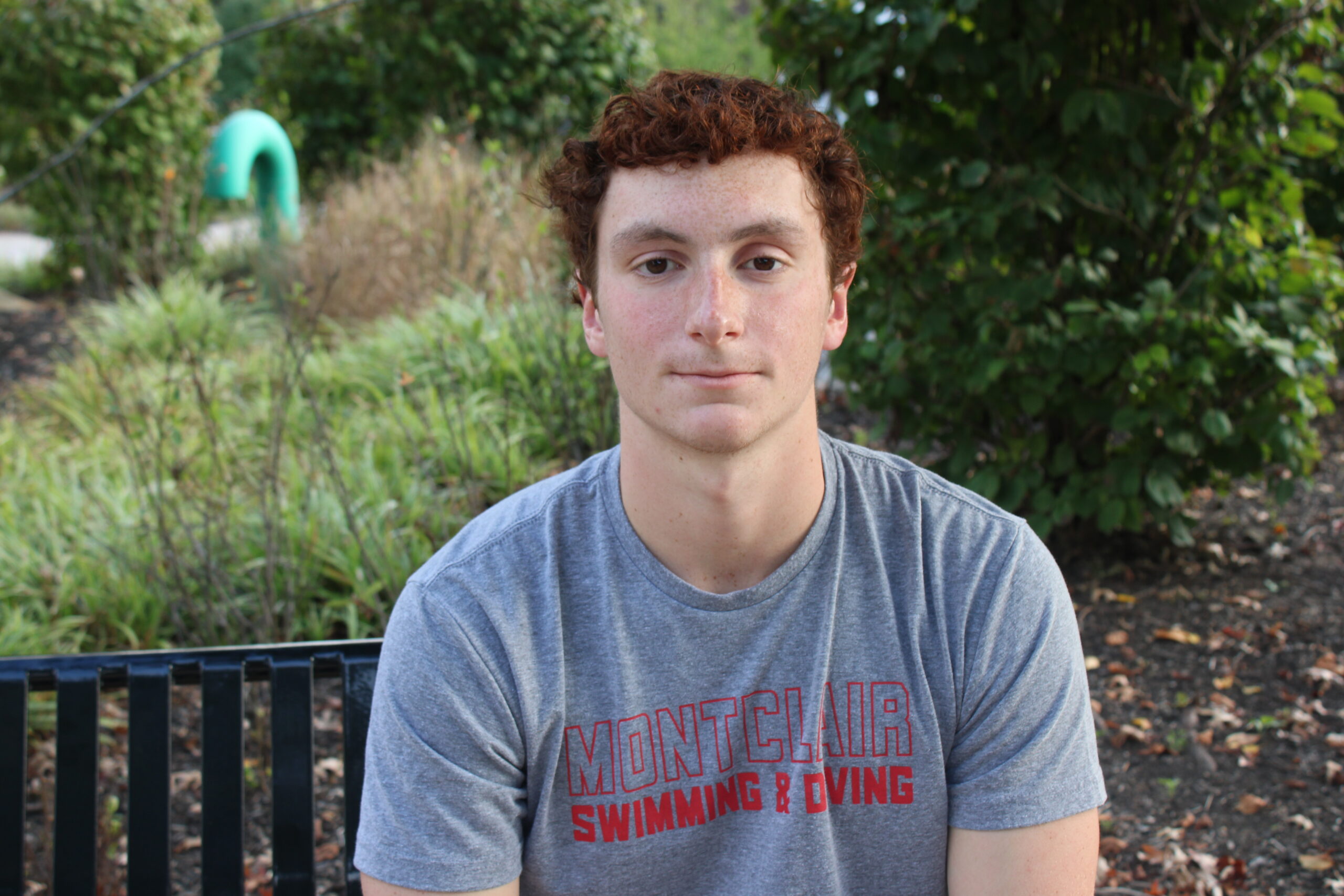
Darren Rockwell, a freshman business administration major, currently remains undecided because of his uncertainty and unfavorable views of the candidates. Photo credit: Lauren Rivera
Darren Rockwell, a freshman majoring in business administration with a concentration in finance, feels that neither candidate will represent this country well, and this concern is partially why he remains undecided.
“They could be talking more about issues and less about each other,” Rockwell said. “They’re making it more about them and winning the race, than it being a race to make our country better.”
Philp also appreciated how the VP candidates conducted themselves in a more “cordial” manner than their running mates.
“I think the vice presidents would be better presidents than the actual presidential [candidates],” Philp said. “When it comes to the presidential candidates, they throw some personal jabs in there. We don’t really need that.”
Schwed, rather than feeling disheartened by the choices in this election, remains optimistic about the future of this country, and hopes that everyone will turn out to vote on Nov. 5.
“We can sit and watch and we can debate back and forth with one another as much as we want, but at the end of the day, if we don’t go out and make our voice heard and known, then our opinions aren’t really going to matter much,” Schwed said.

